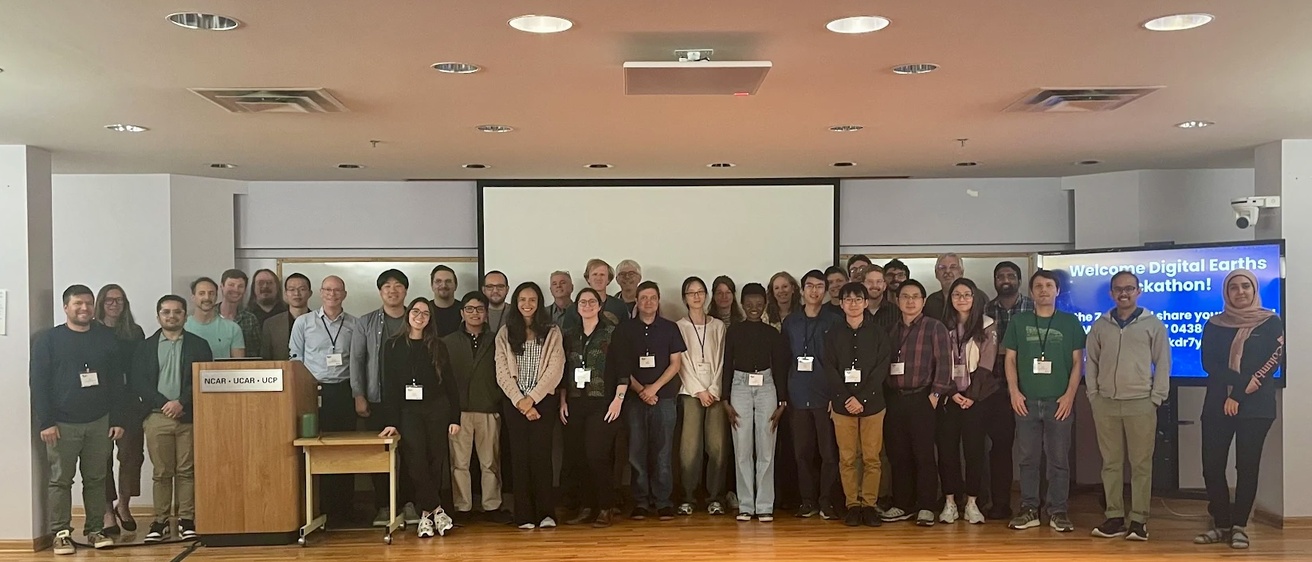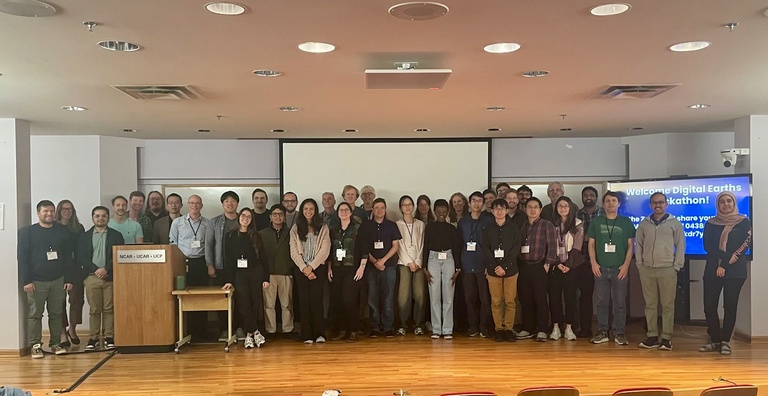Last week, PhD student Vanessa Robledo participated in the WCRP Global Kilometer-Scale Hackathon 2025, hosted at the NCAR node in the United States. This groundbreaking event united researchers across approximately ten global nodes—from Germany to Japan, Brazil to the UK—in a coordinated, collaborative effort to push the boundaries of storm-resolving climate modeling and data accessibility.
The hackathon was organized under the WCRP Digital Earths Lighthouse Activity, supported by major international initiatives such as Destination Earth (DestinE), NextGEMS, WarmWorld, and others. Participants worked with outputs from 6–8 global climate models, all run at sub-5 km resolutions using the standardized Sendai protocol, enabling novel, process-based analysis of convective and mesoscale dynamics.
Vanessa focused her work on analyzing the representation of Mesoscale Convective Systems (MCSs) in the high-resolution simulations. Using the ATRACKCS storm tracking algorithm, she tracked and characterized convective systems across multiple model outputs. Her analyses provided valuable insights into how well current kilometer-scale models capture MCS behavior, including structure, frequency, and lifecycle.
In group meetings and discussions, Vanessa presented her findings, offering perspectives on how convective-permitting models might be improved in future iterations. Her contributions helped the broader community evaluate the strengths and limitations of these simulations and highlighted areas for further development.

